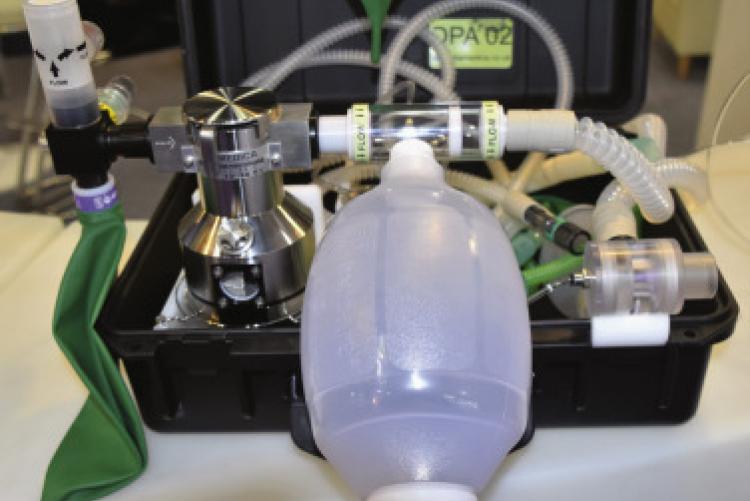In response to the Covid-19 pandemic, Science & Technology Park, University of Nairobi (UoN) is collaborating with a team at University of Cambridge (CAM) to develop an oxygen concentrator and ventilator.
The two teams are part of the wider Open Ventilator System Initiative (www.ovsi.org); a consortium of academics, engineers, intensive care medics, inclusive innovators and industry partners across the UK and Africa. Formed in March this year, the initiative has grown very quickly from an initial idea at the University of Cambridge to a team of 60 individuals contributing remotely. The Clinical Advisory Panel is being led by intensivists in Uganda, Kenya, the DRC, South Africa and the UK. The clinical partnerships were established with the support of the Cambridge-Africa programme and Cambridge Global Health Partnerships.
The UoN team has designed the oxygen concentrator. The team at CAM has designed an open source ventilator in partnership with local clinicians, engineers and manufacturers in Uganda, Kenya, the DRC, South Africa and the UK. The first ventilators will be delivered in May by a team in South Africa led by Defy, the largest southern African manufacturer of domestic appliances, and Denel, a major state-owned company.
Built primarily for use in low- and middle-income countries, the OVSI ventilator can be cheaply and quickly manufactured from readily available components. “Fulfilling the unique requirements of local clinicians was key to this project,” said Professor Axel Zeitler from the Department of Chemical Engineering and Biotechnology, and the OVSI team lead. “Clinicians told us the ventilator needed to cover the wide spectrum of patient ventilation requirements, and therefore work in three modes – Non Invasive, Mandatory or Patient Triggered Ventilation. We also know that local oxygen availability varies within countries, hospitals and wards. The system must use the smallest amount of oxygen possible and the potential to add an oxygen concentrator.” Zeitler added.
The ventilator was designed and built by a team based in The Whittle Laboratory. Professor Robert Miller, Director of the Whittle Laboratory said “Critical to this project has been the speed of technology development. In recent years, the primary focus of the Whittle Laboratory has been to accelerate the process of technology development. By merging the digital and physical systems integral to the technology development process and by using Formula 1 style teams, times have been cut by between 10 and 100 times. This capability has been key to delivering the OVSI ventilator”. The prototype is currently being productionised in the UK by Prodrive Ltd, a British motorsport and advanced engineering group based in Banbury, Oxfordshire.
“While the immediate need is to save lives in the context of the COVID-19 pandemic, we wanted something that will be useful to healthcare workers around the world going forward.” said Dr Lara Allen, CEO of the Centre for Global Equality, a founder member of the OVSI team. “It’s often the case that those living on less than $4 per day are excluded from the innovation process,” Allen added. “As a result, many well-meaning innovations are not what is needed or wanted by the intended beneficiaries and end up not being used. This is disappointing for designers, a waste of humanitarian resources, and low-resource communities continue to go without the support they desperately need. This is why taking an inclusive innovation approach is vital for sustainable impact.”
The Bahir Dar Institute of Technology, Bahir Dar University, in Ethiopia; the Centre for Global Equality, University of Cambridge; and Science & Technology Park, have committed to developing long-term inclusive innovation partnership. This partnership already an integral part of OVSI will enable local manufacturing and maintenance of the ventilator and oxygen concentrator across Africa.
‘In the face of this global pandemic that threatens us all, we are persuaded that this collaboration is the way to build medical devices and innovative capacity that meets the needs of our populations’ Dr. Richard Ayah, Maker Space, Science & Technology Park, University of Nairobi.

